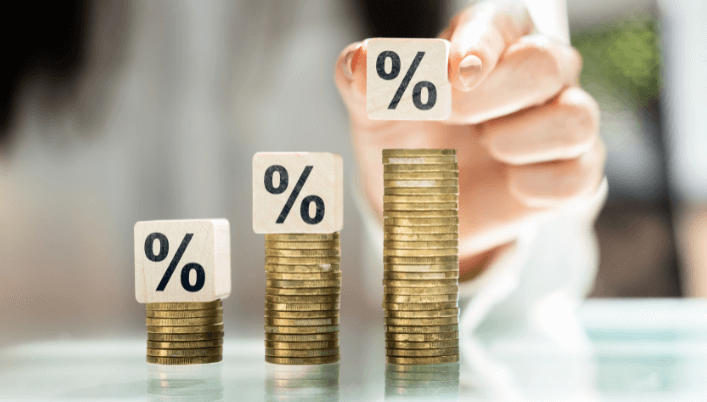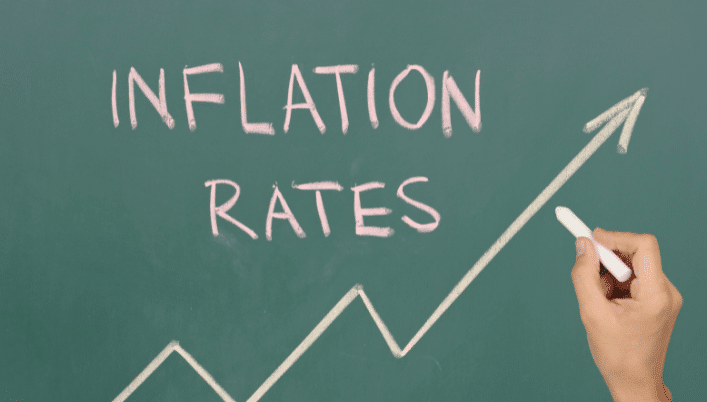Inflation in Singapore

What is inflation?
Inflation refers to the increase in prices of goods and services over time.
In the context of Singapore in 2023, inflation plays a crucial role in understanding the health of the economy.
It is important to monitor the rate at which prices rise as it affects the purchasing power of consumers and the overall economic growth of a country.
Inflation in Singapore eased in June 2023, with consumer prices rising at a slower rate.
Data from the Monetary Authority of Singapore (MAS) and the Ministry of Trade and Industry (MTI) showed that the MAS core inflation, which excludes private road transport, fell to 3.1 percent year-on-year.
This marked the fourth straight month of core inflation easing, reaching its lowest rate since February 2022.
Overall inflation for 2023 is expected to moderate, with MAS expecting it to be between 4.5 percent and 5.5 percent.
Services inflation also fell to 4.2 percent in June, down from 5.8 percent in May.
This indicates that Singapore’s core inflation continued to slow, reflecting a more subdued inflationary environment.
How is inflation measured in Singapore?
In Singapore, inflation is measured using the Consumer Price Index (CPI), which is a widely accepted indicator of inflation.
The CPI measures changes in the average price level of a basket of goods and services consumed by households.
It takes into account factors such as housing, transport, and food prices to provide an overall picture of inflation.
The headline inflation rate is the commonly reported figure that captures the overall change in prices.
However, there are also other measures of inflation, such as core inflation, which excludes volatile items like food and energy prices to provide a more accurate picture of underlying inflation trends.
What are the main causes of inflation?
Several factors contribute to inflation in Singapore.
Cost-push inflation occurs when there is an increase in production costs, such as wages and raw materials, which leads to higher prices for goods and services.
Changes in the global and Singapore economies can also influence inflation rates, as economic conditions impact demand and supply dynamics.
Government policies, such as changes in taxes and regulations, can also affect inflation.
For example, an increase in taxes can lead to higher prices for consumers.
http://www.youtube.com/watch?v=NhsdN_elJWw
Inflation is both a challenge and an opportunity for Singapore’s economy.
While moderate inflation can indicate healthy economic growth, high inflation can erode consumers’ purchasing power.
Policymakers and businesses need to monitor and manage inflation to maintain a stable and sustainable economy.
Key Takeaways
- What is inflation?
- Inflation is the rise in prices of goods and services over time, impacting the economy and consumers’ purchasing power.
- Measuring inflation in Singapore
- In Singapore, inflation is measured using the Consumer Price Index (CPI), which considers housing, transport, and food prices.
- Causes of inflation
- Factors contributing to inflation include production cost increases, economic conditions, and government policies like taxes.
- Headline inflation in Singapore
- The headline inflation rate is the overall change in consumer prices and is influenced by production costs and supply and demand dynamics.
- Core inflation in Singapore
- Core inflation excludes transport and accommodation costs and provides a more accurate measure of underlying inflation trends.
- Inflation across goods and services
- Different sectors, such as private transport, food, and services, may experience varying inflation rates.
- Outlook for inflation in 2023
- Factors affecting Singapore’s 2023 inflation include the global economic outlook, growth momentum, and government policies.
- Consensus forecast for 2023 inflation
- Economists predict a moderate increase in overall inflation, but forecasts can change due to evolving economic conditions.
- Risks to the inflation outlook
- Unforeseen events, inflation shocks, and government policies can lead to volatile or declining inflation rates.
- Impact of inflation on Singaporeans
- Inflation impacts both households and businesses, leading to higher living costs and potential business price increases.
Inflation rates in Singapore

Headline inflation rate in Singapore
The headline inflation rate refers to the overall rate of inflation in Singapore, which measures the average change in consumer prices.
Inflation in Singapore is influenced by various factors, including the cost of production, supply and demand dynamics, and government policies.
In 2023, Singapore’s headline inflation rates are projected to rise slightly due to cost-push inflation, which is driven by increased costs of production and supply chain disruptions.
Core inflation rate in Singapore
The core inflation rate in Singapore focuses on consumer prices excluding the costs of private transport and accommodation.
It is often considered a more accurate measure of underlying inflation trends.
Core inflation helps policymakers assess the underlying inflationary pressures and determine the appropriate monetary policy.
In 2023, Singapore’s core inflation is expected to remain stable, with moderate increases driven by cost-push inflation.
Inflation rates for different goods and services in Singapore
Inflation rates can vary across different goods and services in Singapore.
Some sectors may experience higher inflation than others due to unique factors.
For example, private transport costs, such as vehicle prices and fuel prices, can contribute to inflation.
The costs of food and other consumer goods may also experience inflationary pressures.
However, services inflation, such as healthcare and education, may have different inflation drivers.
Consumers and businesses need to keep track of these inflation rates to make informed decisions and manage their finances effectively.
http://www.youtube.com/watch?v=cPxVafa-07U
In conclusion, understanding the inflation rates in Singapore is crucial for individuals and businesses alike.
Whether it is the headline inflation rate, core inflation rate, or specific inflation rates for goods and services, monitoring these trends helps in making informed financial decisions and planning for the future.
Outlook for inflation in Singapore in 2023

When it comes to understanding the economic landscape of a country, inflation plays a crucial role.
In the case of Singapore, inflation refers to the rate of price increase for goods and services over time.
For businesses and individuals alike, having a clear outlook for inflation in Singapore can help make better financial decisions.
Factors that will affect inflation in Singapore in 2023
Several factors contribute to the inflationary pressures that Singapore may experience in 2023.
These factors include the global economic outlook, growth momentum, and national policies.
As Singapore heavily relies on international trade, changes in global economies and trade relations may impact the cost of imported goods and services, subsequently affecting local prices.
Additionally, the growth momentum of Singapore’s economy will play a significant role in determining inflation levels.
If the economy is experiencing robust growth, it may lead to increased demand and potentially higher prices.
Conversely, slower economic growth may result in lower inflation rates.
Consensus forecast for inflation in Singapore in 2023
Economists and experts provide consensus forecasts for inflation in Singapore in 2023.
These forecasts are based on various economic indicators and trends.
While the specific figures may vary, the median forecast suggests a moderate increase in overall inflation for the year.
It is important to note that these forecasts are subject to change based on evolving economic conditions.
Risks to the inflation outlook
When considering the inflation outlook for Singapore in 2023, it is essential to understand the potential risks.
Inflation shocks, abrupt disruptions in the global economy, or unforeseen events can lead to volatile inflation.
It is also worth noting that inflation rates may not always be on an upward trajectory.
Factors such as moderation in inflation due to government policies or global economic adjustments can influence the inflation outlook.
In conclusion, having a clear understanding of the outlook for inflation in Singapore in 2023 is crucial for businesses and individuals to plan and make informed financial decisions.
By considering the factors that affect inflation, consensus forecasts, and potential risks, it becomes easier to navigate the economic landscape and adapt accordingly.
Impact of Inflation on Singaporeans: Core inflation eased
How inflation affects households and businesses
Inflation is a concern for both households and businesses in Singapore.
Rising consumer price inflation can put pressure on household budgets, making it more difficult for families to meet their daily expenses.
Imported goods, in particular, can become more expensive due to inflation and this can affect the cost of living for Singaporeans.
Furthermore, the recent increase in the GST rate and carbon tax hike has added to the burden of increasing prices.
This can cause financial strain on households as they have to allocate a larger portion of their income towards essential goods and services.
However, businesses are not exempt from the impact of inflation.
Rising costs of production, such as higher wages and raw material prices, can cut into their profit margins.
This can lead to businesses increasing their prices, passing on the burden to consumers.
Government measures to help Singaporeans cope with inflation
To ease the impact of inflation on Singaporeans, the government has implemented several measures.
These include providing additional one-off support measures to help households cope with the rising cost of living.
For example, during periods of high inflation, the government may provide cash vouchers or utility rebates to offset the increased expenses.
Another measure is the implementation of measures to manage household electricity costs.
This includes providing subsidies for energy-efficient appliances and promoting the use of renewable energy sources.
Tips for Singaporeans on how to manage their finances during inflation
Singaporeans can also take steps to manage their finances during periods of inflation.
This includes creating a budget and tracking expenses to ensure that money is allocated appropriately.
Additionally, Singaporeans can consider cost-saving measures such as purchasing in bulk or seeking out promotions and discounts.
Furthermore, individuals need to stay informed about changes in consumer prices and adjust their spending habits accordingly.
Being mindful of the impact of inflation on their finances can help Singaporeans make informed decisions and adapt to the changing economic environment.
How to invest against inflation in Singapore

Inflation is a concern for many investors, as it erodes the purchasing power of money over time.
Singapore, like any other country, is not immune to inflationary pressures.
Hence, it is crucial to have investment strategies in place to protect your wealth.
Here are some key points to consider:
Asset classes that tend to perform well during inflation
Certain asset classes have historically performed well during inflationary periods.
These include:
- Real Estate: Investing in properties can be a good hedge against inflation, as the value of real estate tends to rise with prices.
- Commodities: Commodities like gold, silver, and oil have traditionally maintained value during inflationary periods.
- Stocks: Select stocks of companies in sectors like healthcare, utilities, and basic consumer goods tend to perform well during inflation, as their goods and services are in high demand.
Investment strategies to help Singaporeans protect their wealth from inflation
To protect your wealth from inflation, consider these strategies:
- Diversification: Spread your investments across different asset classes to reduce risk.
- Consider inflation-linked bonds: These bonds provide returns that are linked to inflation rates, ensuring that your investments keep pace with rising prices.
- Invest in companies with pricing power: Look for companies that can increase prices and maintain profitability during inflationary periods.
Risks to consider when investing against inflation
While investing against inflation can be beneficial, it is important to be aware of potential risks, including:
- Volatility: Inflation levels can be unpredictable, leading to market volatility.
- Monetary policy tools: Central banks may implement policies that impact interest rates, which can affect investment returns.
By understanding these investment strategies and risks, Singaporeans can better protect their wealth and navigate the impact of inflation on their investments.
Conclusion
As Singapore continues to navigate economic changes and global uncertainties, the recent data on inflation provides valuable insights into the state of the country’s economy.
In recent months, Singapore has seen a drop in core inflation, signaling a moderation in consumer prices.
According to reports from the Straits Times, the Monetary Authority of Singapore (MAS) recorded a core inflation rate of 4.2% in June, down from 5.5% in May.
This decline was primarily driven by lower private transport inflation and accommodation inflation.
Understanding inflation trends and their impact on the economy is crucial for policymakers, businesses, and consumers alike.
The sustained drop in core inflation indicates that the Singapore economy is experiencing a period of stability.
This is evident in the robust growth the country has witnessed in recent years.
Despite the easing of core inflation, Singapore’s consumer prices continue to rise at a slower pace.
Inflation for food and retail has recorded the steepest decline, while electricity and gas inflation remain relatively stable.
This slower rate of inflation reflects the overall moderation expected in the coming year.
The Ministry of Trade and Industry (MTI) and MAS have maintained their forecasts for overall inflation in Singapore.
For 2023, MAS expects inflation to remain between 3.5% and 5.5%, while the MTI predicts a range of 4.5 % to 5.8%.
These forecasts take into account factors such as global commodity prices, excludes private, imported costs, and the exclusion of private road transport and accommodation costs.
Looking ahead, MAS is expected to keep a close watch on inflation and continue to make necessary adjustments to monetary policy.
The Monetary Authority of Singapore plays a crucial role in ensuring price stability and supporting sustainable economic growth.
In summary, while Singapore’s inflation rate has experienced fluctuations, the recent drop in core inflation signals a period of stability in the economy.
The country’s average inflation rate and the sustained moderation in consumer prices highlight the positive trajectory of the Singapore economy.
With a proactive approach from the government and continued monitoring by MAS, Singapore is well-positioned to navigate potential challenges and maintain its economic resilience in the years to come.
Frequently Asked Questions
What is the current inflation rate in Singapore Averaged?
The current inflation rate in Singapore is 4.1%.
What is core inflation?
Core inflation is a measure of inflation that excludes the prices of volatile items such as food and energy.
It focuses on the underlying trend in inflation.
How is inflation forecasted?
Inflation is forecasted by analyzing various factors such as economic indicators, trends in consumer prices, and government policies.
Is inflation expected to ease in Singapore in 2022?
Yes, inflation is expected to ease in Singapore in 2022.
What are the factors putting pressure on inflation in Singapore?
Factors putting pressure on inflation in Singapore include higher inflation for food and rising commodity prices.
What is the current core inflation rate in Singapore?
The current core inflation rate in Singapore is 3.1%.
Has inflation for food eased in Singapore?
Yes, inflation for food has eased in Singapore.
Is there lower inflation for food in Singapore?
Yes, there is lower inflation for food in Singapore.
What is the lowest rate since 2023?
The lowest rate of core inflation since is 3.5%.
How has Singapore's inflation rate averaged over the years?
Singapore’s inflation rate has averaged over the years.












